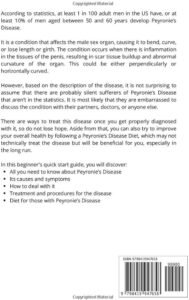Overview of Rhinosinusitis

Comprehensive Overview of Rhinosinusitis
Estimated Reading Time: 4 minutes
Rhinosinusitis, commonly referred to as sinusitis, involves inflammation of the nasal passages and sinus cavities. Approximately one in seven people in the United States experience rhinosinusitis each year, with certain factors such as smoking, asthma, dental issues, compromised immune systems, swimming, or rapid changes in air pressure (e.g., air travel or scuba diving) increasing the likelihood of developing this condition. Typically, rhinosinusitis is caused by either allergies or infections.
Classification of Rhinosinusitis
Rhinosinusitis is classified into four categories based on the duration of symptoms:
-
Acute Rhinosinusitis: Symptoms last less than 4 weeks.
-
Subacute Rhinosinusitis: Symptoms persist for 4 to 12 weeks.
-
Chronic Rhinosinusitis: Symptoms last more than 12 weeks.
-
Recurrent Rhinosinusitis: Four or more episodes per year.
Acute sinusitis often follows an upper respiratory tract infection, while chronic sinusitis is commonly associated with allergies, nasal polyps, a deviated septum, or undiagnosed fungal infections (often in immunocompromised individuals).
Common Symptoms of Rhinosinusitis
Regardless of the cause or duration, the symptoms of rhinosinusitis may include:
-
Runny nose
-
Postnasal drip
-
Nasal congestion
-
Facial pain or pressure
-
Headaches
-
Toothaches
-
Loss of smell
-
Bad breath (halitosis)
Unlike adults, children with rhinosinusitis often experience a persistent cough. In some cases, a dentist or optometrist may be the first to identify symptoms and refer patients to an ear, nose, and throat (ENT) specialist. If left untreated, chronic rhinosinusitis can lead to more severe complications, including sleep apnea and nasal polyps.
Diagnosis of Rhinosinusitis
Your healthcare provider will typically diagnose rhinosinusitis based on your symptoms and physical examination. If an infection is suspected, additional tests such as nasal or sputum cultures and possibly a CT scan may be performed to identify the cause and extent of the infection. These tests help determine the appropriate treatment plan, including the type of antibiotics needed if applicable.
Treatment for Rhinosinusitis
Treatment for rhinosinusitis varies depending on the severity and duration of symptoms. If bacterial infection is suspected, antibiotics may be prescribed. However, antibiotics are not effective for viral infections, which are common in cases of rhinosinusitis.
For symptom relief, many over-the-counter medications such as acetaminophen or ibuprofen for pain relief, pseudoephedrine for decongestion, nasal irrigation, and topical steroids can be used. Allergic rhinosinusitis may be treated with antihistamines like Claritin, Zyrtec, or Allegra.
Decongestants are commonly used to reduce nasal swelling, and many of these are available over-the-counter. It’s important to use nasal decongestants cautiously and avoid overuse, as medications like Afrin (oxymetazoline) or Neo-Synephrine (phenylephrine) can cause rebound congestion and lead to dependency.
A Word of Caution
Chronic sinusitis is often mistakenly self-diagnosed by individuals who believe they are suffering from seasonal allergies. Similarly, people with migraines may incorrectly treat their symptoms as sinusitis. It is essential to seek a proper diagnosis from a healthcare professional, especially if your symptoms are severe, persistent, worsening, or affecting your quality of life.
Prevention of Postnasal Drip
Effective management of rhinosinusitis includes preventive measures and lifestyle adjustments, such as avoiding known allergens, maintaining good hydration, and practicing proper nasal hygiene. Seeking timely medical advice and treatment can help prevent complications and improve overall health outcomes.
Frequently Asked Questions
Expert Advice
-
Incorporating seasonal ingredients into your meals can keep your menu exciting.
-
Consider preparation shortcuts or time-saving methods for busy individuals.
-
Always accommodate dietary restrictions and offer substitution options for those with special dietary needs.
Key Takeaways
-
These dinner ideas are perfect for impressing guests or celebrating special occasions.
-
Select recipes that suit your skill level and available kitchen tools.
-
A balance of presentation and taste ensures a memorable dining experience.
Join Our Community
For more inspiration like this, subscribe to our newsletter for weekly updates, dinner ideas, and helpful cooking tips!
Subscribe Now



